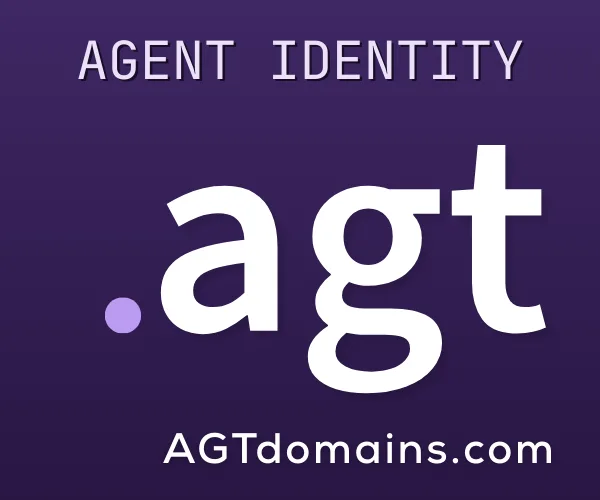Many will argue that you can't be a domain investor and a domain developer. I will argue that you can and, if it fits your skillset, you should. When it comes to e-commerce and online education, selecting the right platform to build your online store or learning management system (LMS) is crucial. Two popular choices emerge: Shopify, a powerhouse in e-commerce solutions, and WordPress, a content management system (CMS) giant when combined with a plugin like LearnDash for creating courses. I recently built a learning site for a client and I'd like to share the pros and cons of using Shopify versus WordPress with LearnDash, aiming to shed light on which option might be better in the long run, and exploring other alternatives.
Shopify: The E-commerce Specialist
Pros:
- User-Friendly Interface: Shopify is renowned for its intuitive, user-friendly interface. It’s designed for entrepreneurs who want a streamlined process for setting up their online store without the need for deep technical knowledge.
- All-in-One Platform: Shopify provides a comprehensive suite of tools necessary for e-commerce, including hosting, payment processing, inventory management, and customer service features. This all-in-one approach simplifies operations for store owners.
- Scalability: As your business grows, Shopify can easily accommodate increased products, sales, and traffic, making it an excellent choice for businesses planning to scale.
- Security: Offering robust security measures, Shopify takes care of updates and maintenance to keep your online store secure against threats.
Cons:
- Cost: Shopify’s simplicity and power come at a cost, with monthly subscription fees and additional transaction fees if you choose not to use Shopify Payments.
- Customization Limits: While Shopify is highly customizable with themes and apps, there’s a ceiling to how much you can tweak unless you know Liquid, Shopify’s own template language.
- Content Management Limitations: For those who want to heavily focus on content marketing or educational components, Shopify’s blogging and content creation tools are somewhat basic compared to dedicated CMS platforms.
WordPress with LearnDash: The Flexible Educator
Pros:
- Flexibility and Customization: WordPress, combined with LearnDash, offers unparalleled flexibility. You can customize every aspect of your site and LMS, from the appearance to the functionality, thanks to thousands of themes and plugins.
- Content Management Excellence: WordPress excels in content management. Creating and managing educational content, blogs, and additional resources is seamless and intuitive, making it ideal for content-focused sites.
- Cost-Effective: WordPress itself is free, and LearnDash offers various pricing plans without recurring transaction fees. This can be more cost-effective, especially for those just starting out or operating on a tight budget.
- Large Community Support: WordPress benefits from a vast community of developers and users. You can find a plethora of tutorials, forums, and third-party services to help customize and maintain your site.
Cons:
- Learning Curve: The freedom WordPress offers comes with complexity. Users may find the plethora of options and the need to manage hosting, backups, and security overwhelming.
- Maintenance: Unlike Shopify, you’re responsible for maintaining your WordPress site. This includes updates, backups, and ensuring your site’s security.
- Performance: Your site’s performance can vary based on the hosting service you choose, the plugins you install, and how well your site is optimized.
Which is Better in the Long Run?
The decision between Shopify and WordPress with LearnDash or any other LMS plugin largely depends on your primary focus. If you’re aiming to create and sell online courses with a strong emphasis on content creation and customization, WordPress with LearnDash offers the flexibility and tools needed to excel. It’s particularly suited for educational organizations or entrepreneurs whose main product is knowledge.
Conversely, if your primary goal is e-commerce, and you’re looking for an all-in-one solution that simplifies the process of selling products online, Shopify stands out. Its ease of use, scalability, and comprehensive e-commerce features make it a powerful platform for online retailers.
Other Options Available
- Moodle: For those focused purely on education and looking for an open-source solution, Moodle offers extensive LMS features and a high degree of customization. It’s well-suited for educational institutions but requires more technical know-how.
- Wix: A user-friendly website builder that offers e-commerce capabilities and an LMS through third-party apps. Wix is suitable for small businesses or educators looking for a simple, drag-and-drop interface.
- BigCommerce: An alternative to Shopify, BigCommerce caters to e-commerce businesses looking for a robust, scalable platform without the transaction fees associated with Shopify Payments.
- Teachable: A platform specifically designed for creating and selling online courses. Teachable offers a simple interface, making it easy to build courses without worrying about the technical aspects of website management.
Choosing between Shopify and WordPress with an LMS plugin depends on your project's nature, your technical proficiency, and your long-term goals. Shopify is ideal for those prioritizing e-commerce, offering a streamlined, secure, and scalable platform. In contrast, WordPress with LearnDash provides unmatched flexibility and content management capabilities, perfect for those whose primary offering is educational content.
In my case, WordPress and Learndash won hands down due to the level of customization needed and the additional features my client wanted to have.
Ultimately, the best platform is one that aligns with your business model, supports your growth, and meets your customers’ needs. As the digital landscape continues to evolve, staying informed and adaptable will ensure your online venture thrives in the long run.



